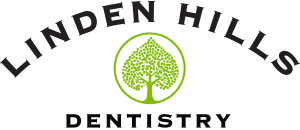Why Saliva Matters: The Unsung Hero of Oral Health
Saliva is often overlooked, yet it plays an indispensable role in maintaining a healthy mouth and supporting overall wellness. Far more than just moisture, saliva is a complex fluid that protects teeth, aids digestion, and defends against oral diseases. At Linden Hills Dentistry, we’re committed to educating our Minneapolis community about the science of oral health. Below, we explore why saliva is a vital ally, how it safeguards your smile, and practical ways to maintain salivary health to combat issues like dry mouth.
The Science of Saliva: A Multifaceted Protector
Saliva is produced by salivary glands and consists of water, enzymes, minerals, and antibacterial compounds. On average, a healthy adult produces about one to two liters of saliva daily, which works tirelessly to keep the mouth in balance. Its key functions include:
-
Neutralizing Acids: Saliva helps maintain a neutral pH in the mouth, counteracting acids from foods, drinks, or bacteria that can erode tooth enamel.
-
Protecting Enamel: Rich in calcium and phosphate, saliva remineralizes enamel, repairing early-stage damage before cavities form.
-
Fighting Bacteria: Antimicrobial agents in saliva, such as lysozyme and lactoferrin, inhibit the growth of harmful bacteria, reducing the risk of cavities and gum disease.
-
Aiding Digestion and Comfort: Saliva lubricates food for easier swallowing, initiates digestion with enzymes like amylase, and keeps oral tissues moist for comfort and speech.
Without adequate saliva, the mouth becomes vulnerable to decay, infections, and discomfort, making its role critical to oral and systemic health.
Why Saliva Matters for Oral Health
A robust salivary flow is essential for a healthy smile and overall well-being. When saliva production is insufficient—a condition known as dry mouth or xerostomia—oral health suffers. Common consequences include:
-
Increased Cavity Risk: Reduced saliva allows acids and bacteria to linger, accelerating enamel erosion and decay.
-
Gum Disease: Less saliva weakens the mouth’s defenses, increasing the likelihood of gingivitis or periodontitis.
-
Oral Infections: Low saliva levels can lead to fungal infections like thrush or persistent bad breath.
-
Discomfort: Dry mouth causes difficulty chewing, swallowing, or speaking, impacting quality of life.
Saliva’s protective effects also extend beyond the mouth, as oral bacteria linked to gum disease can contribute to systemic conditions like heart disease or diabetes complications. Prioritizing salivary health is a proactive step toward comprehensive wellness.
Combating Dry Mouth and Maintaining Salivary Health
Dry mouth can result from medications (e.g., antihistamines, antidepressants), medical conditions (e.g., diabetes, Sjögren’s syndrome), dehydration, or lifestyle factors like smoking. To maintain healthy saliva production and combat dry mouth, consider these evidence-based strategies:
1. Stay Hydrated
Drinking water throughout the day is the simplest way to support saliva production and keep oral tissues moist. Aim for eight glasses daily, sipping frequently rather than gulping large amounts. Key tip: Carry a reusable water bottle to encourage consistent hydration, especially in dry or cold climates like Minnesota winters.
2. Stimulate Saliva with Sugar-Free Gum or Lozenges
Chewing sugar-free gum or sucking on sugar-free lozenges stimulates salivary glands, increasing flow. Look for products containing xylitol, a natural sweetener that inhibits bacterial growth. Chew gum for 10–15 minutes after meals to neutralize acids and promote remineralization. Note: Avoid sugary gum or candies, which feed cavity-causing bacteria.
3. Limit Acidic and Sugary Foods
Frequent consumption of acidic foods (e.g., citrus, soda) or sugary snacks reduces salivary effectiveness by overwhelming its buffering capacity. Opt for enamel-friendly foods like dairy, nuts, and crunchy vegetables, which also stimulate saliva. Practical advice: Rinse your mouth with water after acidic meals to dilute acids before brushing.
4. Avoid Saliva-Reducing Habits
Certain habits can exacerbate dry mouth. Limit caffeine and alcohol, which have dehydrating effects, and avoid smoking or tobacco use, which impair salivary function and increase oral cancer risk. If you use mouthwash, choose an alcohol-free formula to prevent drying oral tissues.
5. Address Dry Mouth with Professional Care
Persistent dry mouth requires professional evaluation. A dentist can assess underlying causes, recommend saliva substitutes, or prescribe medications to stimulate salivary glands. Regular dental checkups ensure early detection of dry mouth-related issues, such as cavities or gum inflammation, and provide tailored solutions like fluoride treatments to protect enamel.
The Lifelong Impact of Salivary Health
Saliva is a silent guardian, working behind the scenes to protect your teeth, gums, and overall health. By staying hydrated, stimulating saliva production, making mindful dietary choices, avoiding harmful habits, and seeking regular dental care, you can harness saliva’s power to maintain a healthy smile. These habits not only prevent oral health issues but also contribute to systemic wellness, reducing the risk of chronic diseases linked to poor oral hygiene.
Linden Hills Dentistry is dedicated to helping the Minneapolis community achieve optimal oral health through education and expert care. If you’re experiencing dry mouth or want to learn more about protecting your smile, schedule a dental visit today. Together, we can ensure saliva remains your mouth’s unsung hero for years to come.


